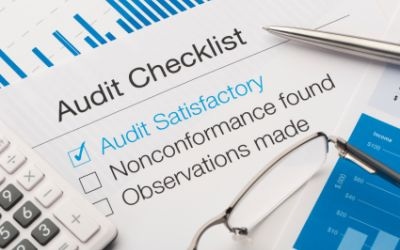Pool Pros Being Hit With New Levels of Regulation, Compliance
Strict, new energy and entrapment codes are being adopted nationwide by localities. That means pros must take it upon themselves to find out what’s required—or face the penalties.
April 19, 2022

As pool season kicks into high gear, pool and spa pros need to prepare themselves for a new level of regulation that will likely make construction more difficult and costly—especially for builders who don’t know or follow codes.
“There’s going to be more local regulation than we’ve ever seen,” said Terry Brannon, faculty chair PHTA/GENESIS engineering and construction. “In the past, we could submit plans on the back of a paper sack and get a permit. But it’s going to be tougher and tougher starting in the metros and going out to the cities.”
The two areas that Brannon said compliance officers are especially focusing on are new energy and entrapment codes.
But some of the codes are voluntary until adopted by local jurisdictions and may be adopted in whole or in part. That means what may be allowed in one city, may not be the same in a suburb just around the corner.
“They need to go to city hall and find out what has locally been adopted,” Brannon said.
Pros also need to prepare to pay more in compliance fees because some jurisdictions are requiring third-party independent inspectors. Brannon said he’s already seeing that practice in Austin, Texas, and he expects it to expand to other cities. He said such inspectors can add around $1,500 in extra fees to the cost.
He added that compliance officers are becoming stricter about what they allow in a finished product. And pros run the risk of having to “spend tens of thousands” redoing pools that aren’t built to code. “I have seen inspectors require ripping out the main drain for being off ¼ inch,” he said. “There’s inspectors out there who live for the day when they can make a contractor do things over.”
Failing to comply could also lead to lawsuits from homeowners, Brannon warned. “My first advice is take the classes, which are offered by dozens of organization,” he said. “But they need to get educated, because what they don’t know can hurt them.”
Knowing the building codes related to deck construction can give builders a competitive advantage on pricing, according to Glenn Matthewson, the president of BuildingCodeCollege.com.
"When you learn the code for yourself, you learn all the things that you're actually allowed to do," Matthewson said in his Pool Spa Pro Influencer interview. He added that learning building codes around decks can help builders adjust costs that are passed on to consumers. "The code is minimum standard of safety and maximum allowable freedom, and that's a good reason to learn it."
The energy standards fall under ANSI/APSP-15a, PHTA’s companion code to the new U.S. Department of Energy (DOE) regulations, which went into effect July 19, 2021, according to Brannon’s teaching materials.
The code:
Applies to residential and not to commercial pools. (The federal law applies to public & private pools)
Applies to 1.0 to 5 total Hp pumps (Federal law applies to 1.15 Hp pumps up to 5.0 Hp)
Applies to the pool filtered circulation pumps (or spa, if spa is circulated and filtered independent of pool).
Does NOT apply to auxiliary pumps for water features, spas on combined pool/spa systems, fountains, slides or any other water feature pump.
Key provisions of the code require that pool filter pump motors with a capacity of 1.0 total horsepower (THP) or greater shall have the capability of operating at two or more speeds with the low speed having a rotation rate no more than one-half of the motor’s maximum speed, Brannon's materials outlined.
The following pumps comply:
Variable speed pump complies with this provision.
Two speed pump with high speed of 3450 rpm and low speed of 1700 rpm complies with this provision.
Two horsepower single speed pump does not comply with this provision.
The code also applies to heaters:
Gas fired pool and spa heaters shall not be equipped with constant burning pilots.
Heaters shall have readily accessible on/off switch mounted on the outside of the heater.
Electric resistance heat shall not be used except for inground spas with insulating covers. (exceptions offered for solar heat or recovered energy)
Gas fired heaters shall have efficiency of at least 82%
Heat pumps shall have minimum coefficient of performance (COP) of 4.0
On the entrapment side, Brannon's materials said there’s the ANSI/APSP-7 and -16 codes. These consolidate the original VGB (Swimming Pool & Spa Act of 2007) and the referenced ASME A112.19.8 and extends application to residential pools.
Specifically, the code prohibits The manufacture, import, sale or distribution of noncompliant code covers with fines up to $1.825 million for violation.
Manufactured Suction Outlet Fitting Assembly (SOFA) requirements:
The SOFA must be installed as directed by the manufacturer in ANSI/APSP-7 2013 (2020 rev)
SOFA’s (with the exception of some unblockable SOFAs in some states) must be installed in minimum of TWO, EACH capable of 100% of the connected pump(s) flowrate.
Flow through the SOFA with all attached pumps functioning at full speed (applies equally to variable speed and two speed pumps) must not exceed the manufacturer’s certified flow rate for the SOFA.
About the Author(s)
You May Also Like




